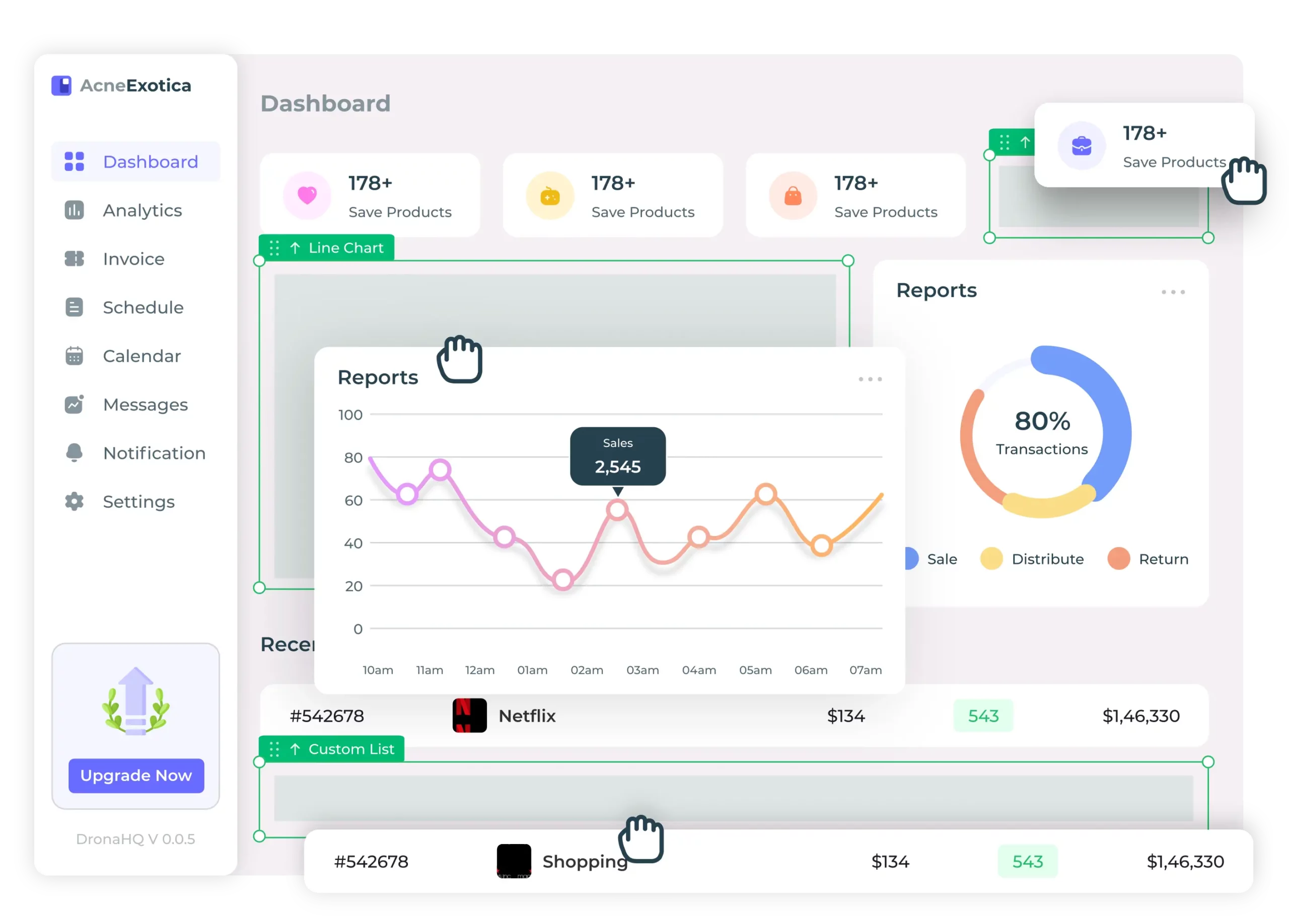Enterprise Resource Planning (ERP) systems have revolutionized the way businesses manage their resources and processes. ERP modules, the core components of these systems, are tailored to address specific functional areas like finance, human resources, inventory, and more. Each module integrates seamlessly to provide a unified view of organizational data, enhancing decision-making and efficiency. Here’s a comprehensive dive into ERP modules, their significance, and the potential challenges businesses might face when implementing them.
What Are ERP Modules?
ERP modules are software components designed to manage and automate various business functions. Instead of standalone systems, these modules integrate into a centralized ERP platform, providing a unified solution for managing operations. Whether it’s accounting, procurement, or customer relationship management, ERP modules help streamline processes, reduce manual errors, and improve productivity.
Key ERP Modules and Their Features
Financial Management
This is the backbone of any ERP system. The financial management module tracks expenditures, revenue, budgets, and reporting.
Features:
- General ledger and chart of accounts
- Financial reporting and compliance
- Budgeting and forecasting
- Accounts payable and receivable
Potential Drawbacks:
- May require extensive customization for specific business needs
- Initial implementation can be costly for small businesses
Human Resources Management
This module covers employee-related activities, from recruitment to payroll.
Features:
- Employee database management
- Recruitment and onboarding
- Time tracking and payroll processing
- Benefits administration
Potential Drawbacks:
- Complexity in integrating with third-party HR tools
- May require frequent updates for compliance with labor laws
Inventory and Supply Chain Management
Efficient inventory control and supply chain processes are critical for operational success.
Features:
- Real-time inventory tracking
- Demand forecasting
- Supplier relationship management
- Warehouse management
Potential Drawbacks:
- Requires meticulous data entry to avoid discrepancies
- Can be overwhelming for companies with diverse product lines
Customer Relationship Management (CRM)
This module focuses on customer interactions and sales processes.
Features:
- Sales pipeline management
- Customer service and support tracking
- Marketing automation
- Data-driven customer insights
Potential Drawbacks:
- Integration with legacy systems can be challenging
- Steep learning curve for new users
Manufacturing
Tailored for production-centric businesses this module streamlines production planning and execution.
Features:
- Bill of materials (BOM)
- Production scheduling
- Quality control
- Maintenance management
Potential Drawbacks:
- Limited functionality for service-based businesses
- Initial setup can be time-consuming
People Are Always Asking:
- What industries benefit most from ERP modules?
Industries like manufacturing retail healthcare and logistics often see significant advantages from ERP systems. - Are ERP modules scalable for growing businesses?
Yes ERP modules can adapt to the changing needs of businesses ensuring long-term value. - How do I choose the right ERP modules for my business?
Start by identifying your pain points and business goals. A tailored solution that aligns with your needs will offer the best results.
Expert Insight: A Word from Tamer Badr
“ERP modules are like the building blocks of a successful business strategy. At Singleclic, we focus on understanding the unique challenges our clients face and recommend the right combination of modules. This ensures they maximize their ROI while minimizing operational bottlenecks” says Tamer Badr, owner of Singleclic.
For more insights from experts like Tamer Badr, check out Singleclic’s ERP services.
Advantages of ERP Modules
- Improved Efficiency: By automating repetitive tasks ERP modules save time and reduce errors.
- Better Decision-Making: Centralized data provides real-time insights for informed decisions.
- Scalability: Modular design ensures ERP systems grow with your business.
- Enhanced Collaboration: Shared data fosters better teamwork across departments.
Potential Drawbacks to Consider
- Cost: ERP systems can be expensive to implement especially for small businesses.
- Complexity: Some modules require specialized training for employees.
- Integration Challenges: Combining ERP with existing systems can be tricky.
- Downtime Risks: Implementing an ERP system might disrupt daily operations initially.
How to Choose ERP Modules
- Assess Business Needs: Identify areas needing improvement.
- Set a Budget: Determine what you can afford without compromising quality.
- Evaluate Vendors: Compare offerings from ERP providers.
- Plan for the Future: Choose scalable modules for long-term growth.
- Check for Support: Ensure the vendor provides training and ongoing assistance.
Reviews from ERP Users
- “The financial management module transformed our accounting process. Reports are now a breeze to generate” – Susan M. CFO
- “We love the CRM module but integrating it with our legacy software was a bit of a hurdle” – John D. Sales Manager
- “Inventory tracking is seamless. Our team is more productive and errors are down significantly” – Maria K. Operations Lead
FAQs
Q: Can I implement only specific ERP modules?
Yes most ERP systems allow businesses to implement modules that address their immediate needs.
Q: How long does ERP implementation take?
Depending on the complexity it can range from a few weeks to several months.
Q: Is training necessary for ERP modules?
Absolutely. Proper training ensures employees use the system effectively and maximize its benefits.
Final Thoughts
ERP modules offer immense potential for businesses to optimize their operations and improve efficiency. However careful planning and selection are essential to avoid pitfalls like high costs and implementation challenges. Singleclic offers tailored ERP solutions to help businesses unlock the full potential of their systems.
For a deeper dive into ERP solutions and to explore how they can benefit your business visit Singleclic’s ERP services page.









